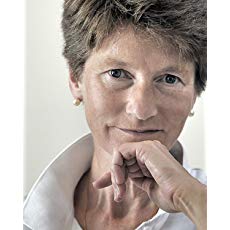Alina
A Song for the Telling
by Malve von Hassell

Know More
“You should be grateful, my girl. You have no dowry, and I am doing everything I can to get you settled. You are hardly any man’s dream.” Alina’s brother, Milos, pulled his face into a perfect copy of Aunt Marci’s sour expression, primly pursing his mouth. He had got her querulous tone just right.
I pinched my lips together, trying not to laugh. But it was true; Aunt Marci had already introduced me to several suitors. So far I had managed to decline their suits politely.
Maybe Alina’s aunt was right. How could she possibly hope to become a musician, a trobairitz, as impoverished as she was and without the status of a good marriage?
But fourteen-year-old Alina refuses to accept the oppressing life her strict aunt wants to impose upon her. When the perfect opportunity comes along for her to escape, she and her brother embark on a journey through the Byzantine Empire all the way to Jerusalem.
Alina soon finds herself embroiled in the political intrigue of noble courts as she fights to realize her dream of becoming a female troubadour.
A Word from the Author
My historical fiction novel Alina: A Song for the Telling emerged as a result of several intersecting points of interest.
One might argue that all stories involve journeys—journeys of the mind, journeys of the imagination, and actual journeys. In my novel, I wanted to convey the sense of an actual journey as much as a journey of personal growth undertaken by my principal character, Alina, a young woman from Provence who travels all the way to Jerusalem. One driving factor is her wish to escape from the restricting circumstances of her life, given her position as an orphan at the mercy of controlling relatives. More importantly, she has a dream of what she would like to do with her life but is searching for a way to make this dream a reality. Her journey opens her eyes on many levels, she learns about the challenges faced by other women of varying social classes, and emerges with greater confidence in her own abilities as well as with a more concrete notion of how to achieve her goals. I set this story in the 12th century to introduce readers to this time as well as to the complex history of Jerusalem in the time of the crusades.
The second focal point revolves around a historical black hole. That is, I stumbled over a story of the surprising and unexplained consequential decision made by a historical character from the 12th century. Stephen de Sancerre, a person of high rank and status, accepted an invitation by King Amalric of Jerusalem to come to the Holy Land in order to marry the king’s daughter Sibylla. Stephen set out on his journey, also fortified with a substantial gift from the king of France in the form of sorely needed funds for Jerusalem. However, after a brief sojourn in the city, Stephen decided against the marriage and returned to France. The historical record contains only a terse statement about this, while offering many details of Stephen’s life before and after his sojourn in Jerusalem. I decided to wrap my story around this intriguing gap in our knowledge.
A third focal point is the history of trobairitz, the female counterparts to the famous troubadours, the singer-songwriters originating in the Provence in the 11th century. There were not many trobairitz. However, the ones we know of are remarkable for their lyrics—sharp, witty, grounded und refreshingly direct in ways that distinguish them from traditional troubadour lyrics—and represent a first in the history of women composers. Until the advent of trobairitz, women composed solely sacred music and were not recorded as individual composers—their names subsumed and forgotten. Trobairitz composed secular music; they were known and respected as musicians and writers. My heroine Alina learned to perform and compose music from her troubadour father. Meanwhile, unlike the trobairitz of her time who were wealthy women of high rank and thus in a better position to pursue their music, Alina is impoverished and with little control of her life. Marriage appears to be the only venue available to her. However, she refuses to accept this and embarks on a precipitous journey toward an unknown country in the hopes of finding a way out of her dilemma.
(Malve von Hassell, September 2020)
Get It
Tweet

